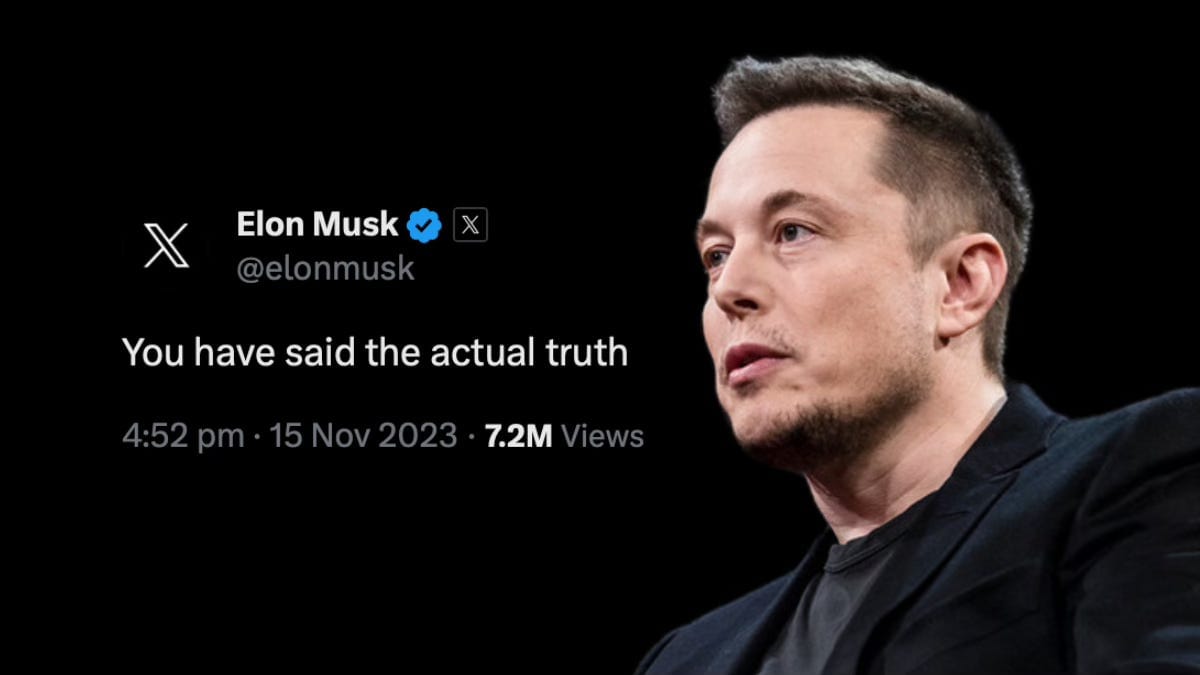
Elon Musk has been making Twitter, or what he now calls X, a haven for far-right conspiracy theories and hate speech since taking over the platform last October. He’s unleashed hordes of white nationalists and fascists onto the website, gutted the trust and safety team, and become a frequent guest in the mentions of some of its most vile users.
But on November 15, Musk finally seems to have crossed a line that many governments and his remaining major advertisers could no longer stomach, especially in light of the spike in antisemitism in Western countries in the aftermath of October 7.
Somehow Musk found himself reading a reply by a random Twitter Blue (now X Premium) subscriber accusing Jewish communities of pushing “dialectical hatred against whites” and supporting “hordes of minorities” that were “flooding” into the United States. The poster said he didn’t give “the tiniest shit” about Jewish people in Western societies that aren’t anti-immigrant zealots.
After reading the conspiratorial comment, Musk seems to have nodded his head in agreement. “You have said the actual truth,” he replied, following it up an hour and a half later with a second tweet accusing the Zionist Anti-Defamation League (ADL) of refusing to “criticize the minority groups who are their primary threat.” That kicked off yet another scandal, but one that feels particularly distinct from what we’ve seen in the past.
Twitter/X is already struggling; it’s not clear it can handle the fallout from Musk’s deepening descent into far-right politics.
Musk’s favorite conspiracy
If you look at the post Musk agreed with on November 15 and the statements he’s been making with greater frequency, there’s a clear throughline — and that’s white genocide.
White genocide and the great replacement are far-right conspiracy theories that suggest there’s a concerted effort to wipe out the white populations of Western countries through mass immigration, reduced fertility rates, and a whole host of other strategies supposedly masterminded by Jews — because it wouldn’t be a good right-wing conspiracy without the overarching antisemitism.
For years, I’ve been pointing out how Musk’s rhetoric on low birth rates and population decline was tinged with racist ideas that many commentators were happy to pass off as an eccentricity of the man they praised for his rockets and electric cars. The past year has shown how their ignorance has led to real harm as Musk continued to accumulate power and wealth over that period without being called out.
Why Silicon Valley is bringing eugenics back
The language Musk uses when he talks about population and birth rates is lifted almost word for word from twentieth-century eugenicists who promoted racist concepts like IQ to present the white race as superior and justify discrimination toward — and even the sterilization of — people of color. Now, those racist ideas work for people like Musk as he seeks to justify his position in society and suggest his wealth and power are the result of his unparalleled genius, not luck and the many advantages he had from his upbringing. The same goes for many of our increasingly radicalized tech elite.
But in the past year, Musk has become much more comfortable saying the quiet part out loud. In July, he waded back into South African politics to boost a white supremacist conspiracy theory that white farmers are being killed en masse by the country’s Black majority. Musk charged a left-wing party of “pushing for genocide of white people in South Africa” and even tagged the country’s president to ask why he wasn’t doing anything about it. Yet the evidence shows there’s little truth to the claim Musk was echoing.
Elon Musk is a racist
By the end of September, Musk went even further by wading into far-right immigration politics. He turned up at the border in Texas to use dozens of migrants that had been captured crossing the border as a prop to promote a new Twitter livestream feature, while letting a Republican Congressman echo anti-immigrant talking points and call for harsher border enforcement in front of Musk’s audience. The following day, he shared a post praising the far-right Alternative für Deutschland party that demonized migrants crossing the Mediterranean.
For someone who talks so much about needing more people on the planet, it became even more clear that his promotion of pronatalism doesn’t extend to everyone. He only wants the population to grow if it means people like him having more kids, not poor people with brown skin coming across the border. That would be a threat to the white race.
Growing backlash
The day after Musk boosted the antisemitic conspiracy that Jews are ushering in the great replacement of whites, Media Matters for America published a report showing ads bought by major companies like Apple, IBM, Oracle, and Comcast were placed alongside posts praising Adolf Hitler and the Nazi Party. It not only further proved CEO Linda Yaccarino is full of shit every time she talks about fake brand protections to win back advertisers, but the one-two punch of Musk’s comments and the report were enough to escalate the scandal to another level.
Twitter/X’s ad business is already in deep trouble. Before Musk took over, advertising accounted for 90% of Twitter’s revenue, but within months more than half of the platform’s top 100 advertisers had left. Ad revenue has declined by at least half since last year, in part because even if some advertisers have returned, many are spending a pittance compared to what they did pre-Musk. This scandal is sure to put the final nail in the coffin of any kind of ad business relying on deep-pocketed major brands.
Has Linda Yaccarino lost it?
In recent days, Apple, Disney, Paramount, Warner Bros. Discovery, Sony Pictures, Lionsgate, and the European Commission pulled their ads off Twitter. Comcast, which owns Yaccarino’s previous employer NBCUniversal, canceled their advertising as well, and even IBM — a company that had no qualms about working with Hitler’s Nazis and supporting South African apartheid — froze its Twitter/X spending.
The White House released a scathing condemnation of Elon Musk’s “abhorrent promotion of Antisemitic and racist hate in the strongest terms.” Deputy press secretary Andrew Bates said everyone has “an obligation to speak out against anyone who attacks the dignity of their fellow Americans and compromises the safety of our communities.” I can’t help imagining if political leaders and journalists had taken that responsibility more seriously much sooner instead of deploying endless praise of Musk and his tech contemporaries for so many years.
Racist damage control
Seeing the backlash, Musk threatened to file a “thermonuclear lawsuit” against Media Matters and everyone associated with it once the courts open on Monday morning, bringing to mind the legal action he’s already started against the Center for Countering Digital Hate, which he blames for an earlier advertiser exodus. These lawsuits are about trying to scare critics into silence so they don’t expose what’s really happening on the platform. But he didn’t stop there.
On November 17, Musk tried to do damage control and only further demonstrated how far he’s fallen down the fascist rabbit hole. To try to prove he isn’t an antisemite, Musk adopted the Zionist redefinition of antisemitism that conflates criticism of the state of Israel with hatred of Jewish people. Specifically targeting Palestinians and supporters of their rights, Musk posted that “‘decolonization’, ‘from the river to the sea’ and similar euphemisms necessarily imply genocide” of Jewish people.
Despite the antisemitism he’d engaged in just days before, the post was declared “an important and welcome move” by ADL director Jonathan Greenblatt. The ADL spreads the idea that anti-Zionism is the new antisemitism and smears Jewish organizations calling for a ceasefire in Gaza as “hate groups.” Greenblatt himself is leading the charge to present pro-Palestinian campus groups as terrorist sympathizers. The organization also disparages those using the phrase “from the river to the sea” and presents it as meaning the expulsion of Jewish people from the territory, when it’s really about creating a single democratic state with equal rights for all its residents.
Consider the bigger picture here: Elon Musk grew up during South African apartheid. He saw the oppression and violence first hand before taking off for North America as the apartheid system was imploding. Now he boosts far-right, antisemitic conspiracy theories about the murder of white farmers in South Africa to back his broader belief in the great replacement conspiracy, and says that “decolonization” rhetoric — exactly what South Africa has lived through and Palestinians are demanding — implies a genocide of the oppressors. It tells you all you need to know about who Musk stands with, and whose humanity he’s comfortable disregarding.
X will fail
The fallout from this latest scandal isn’t over yet, but it’s hard to believe things are going to get any easier moving forward. Musk’s ties with the far right are only strengthening as time goes on, the financial position of the company has been thoroughly eroded, and Yaccarino has no power to actually try to address the problems. In fact, Musk seems to be actively undermining her. Earlier this month, he lifted the bans on two notorious British anti-Muslim bigots, kicking off a negative news cycle at the same time as she was in London trying to woo back advertisers.
Musk is hoping he’ll be able to diversify away from ad sales as the company’s primary revenue source by becoming a bank and an “everything app,” but it’s not clear that will work out either. He’s trying to carry out a plan that’s a mix of China’s WeChat and an online “financial superstore” he tried to build under the name X.com twenty years ago, only for consumers to go for PayPal’s email payments tool instead. Yet he’s failed to consider whether Western users will even go for a poor WeChat clone and how much online banking has evolved in the past twenty years.
Elon Musk wants to relive his start-up days. He’s repeating the same mistakes.
Twitter/X may occasionally roll out some new features, but Musk hasn’t proven most users have any interest in them. He may have a small dedicated cult following that will praise anything he does, but I can’t imagine many people outside that bubble trusting Musk’s company with their banking information, especially after he gutted the staff that would keep it secure from bad actors. The plan isn’t going anywhere, especially with Musk undermining it at every turn.
Last year, Musk paid $44 billion for Twitter, and comments he made in September suggest it could be worth as little as $4 billion today. That’s already a precipitous drop, but if he can’t learn to shut his mouth and take a step back from the company, there’s a good chance it could hit zero by the time the acquisition’s second anniversary rolls around next year. Honestly, that probably wouldn’t be a bad thing.

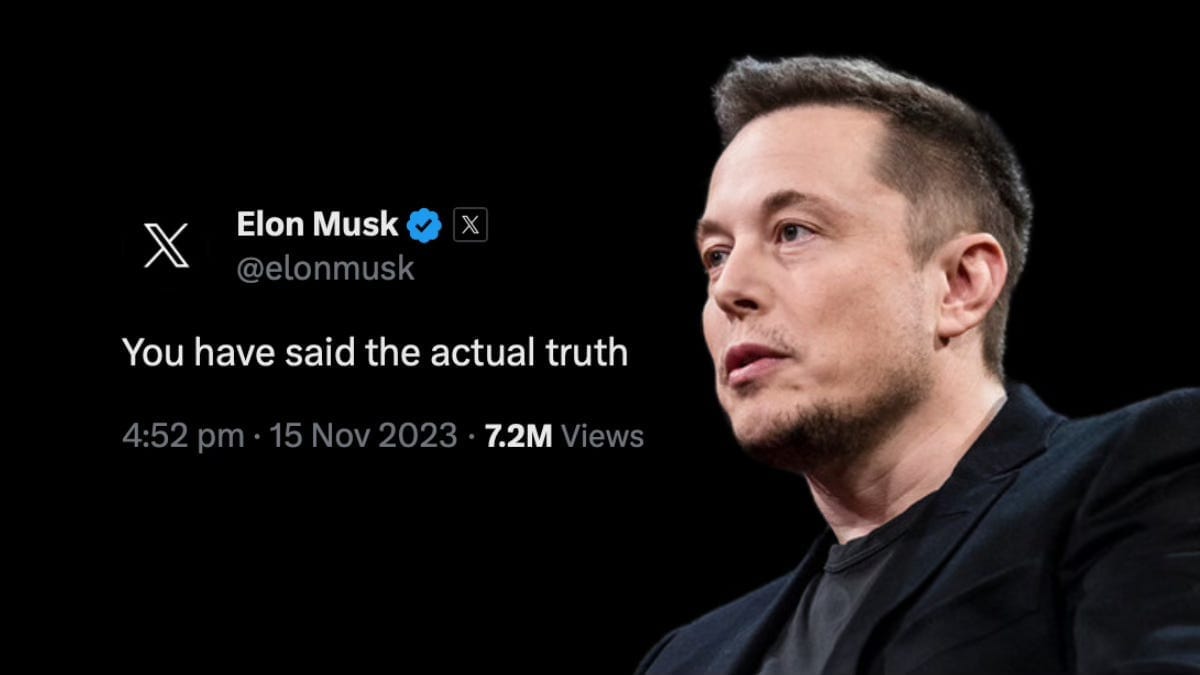
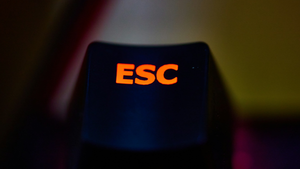



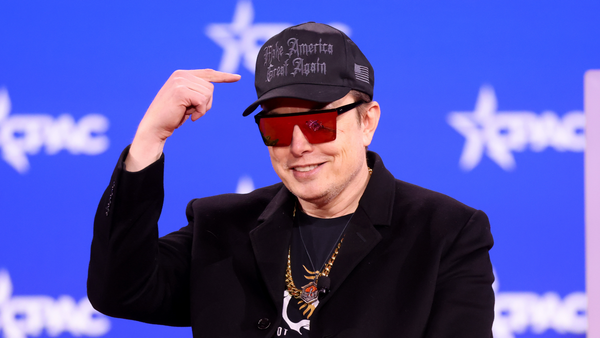

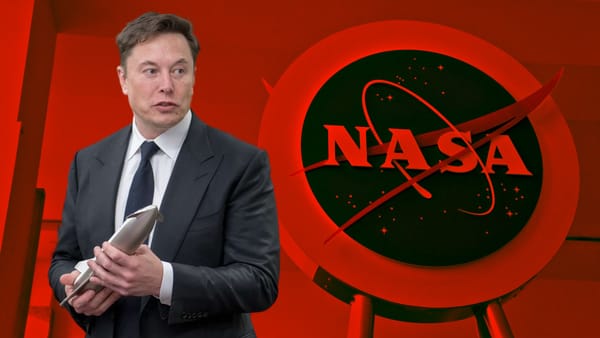
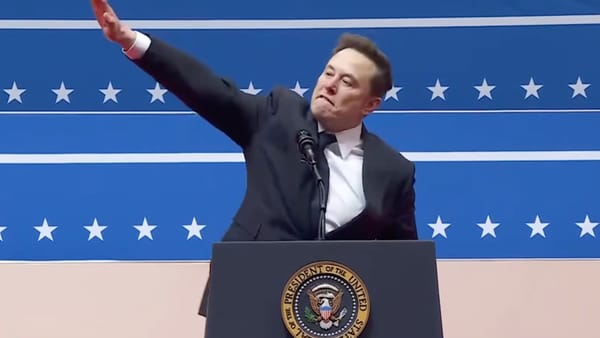
Member discussion